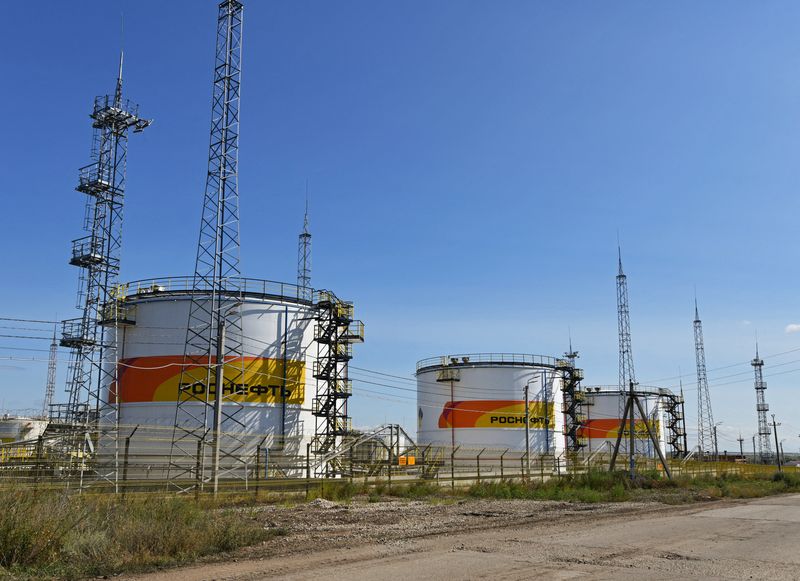By Riham Alkousaa
BERLIN (Reuters) -With the German government's temporary seizure of Russian oil firm Rosneft's assets in Germany set to expire, Berlin is looking at nationalising them, the company's lawyer said on Thursday.
Moscow criticised the potential nationalisation and said it would defend its interests.
Following Russia's invasion of Ukraine in 2022, the European Union, the United States, Japan and Canada froze some $300 billion of Russian central bank assets, while Moscow moved to seize some Western assets.
Germany's economy ministry told Rosneft on Tuesday that if Russia regained control over the companies, which include Berlin's main PCK Schwedt refinery, the refineries' operations would be jeopardized because contractual partners would refuse to cooperate, law firm Malmendier Legal said in a statement published on LinkedIn.
Reuters reported on Wednesday that Berlin was preparing for a possible nationalisation of Rosneft's German activities, including its 54.17% stake in Schwedt refinery, which the German government put under a trusteeship in September 2022 in the wake of Russia's invasion of Ukraine.
Russian media put the valuation of Rosneft's assets in Germany at some $7 billion.
Germany has since extended the trusteeship twice, most recently in September 2023 and needs to make a fresh decision in March, when the current trusteeship expires.
Given the ongoing war in Ukraine, it is not apparent that the situation would change, the law firm cited the ministry as saying.
Rosneft will take all measures to protect the rights of its shareholders, the law firm added, saying that such expropriation would be an unprecedented measure in Germany and would forever damage investment security in the country.
"If a return to Russian control is not at all foreseeable due to the existing state trusteeship and ongoing conflict in Ukraine, why should expropriation be necessary?," Malmendier Legal added.
Rosneft's office in Moscow did not immediately reply to a request for comment.
KREMLIN VOWS ACTION
Kremlin spokesman Dmitry Peskov said that Germany's plans to expropriate Rosneft's shares would have negative consequences and undermine investor confidence and Europe's investment attractiveness.
"This is nothing else than the expropriation of someone else's property," Peskov told a daily conference call with reporters.
"These are steps that undermine the economic and legal foundations of European states, these are steps that absolutely devalue the investment attractiveness of these countries and have very deep consequences for those who make such decisions," he said.
Asked, if Russia will expropriate German assets in Russia to retaliate, he said Moscow didn't rule out any steps to defend its interests.
"We do not exclude anything to protect our interests and to counter the illegal steps that we are talking about," he said.

Peskov also said that there are no available channels of communications with Germany and Rosneft was defending its interests itself for now.
In December, Rosneft filed a case at Germany's Federal Constitutional Court against the German government's trusteeship of its local subsidiaries, saying a court ruling last March that upheld the trusteeship violated the constitutional principle of the right to be heard.